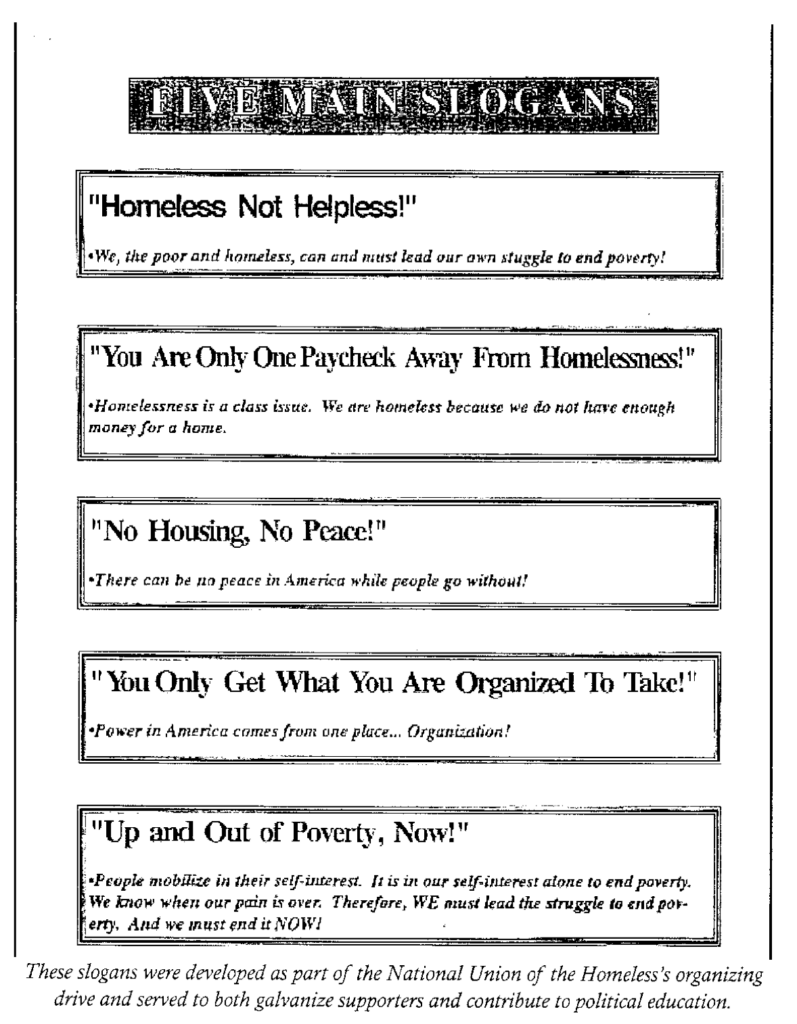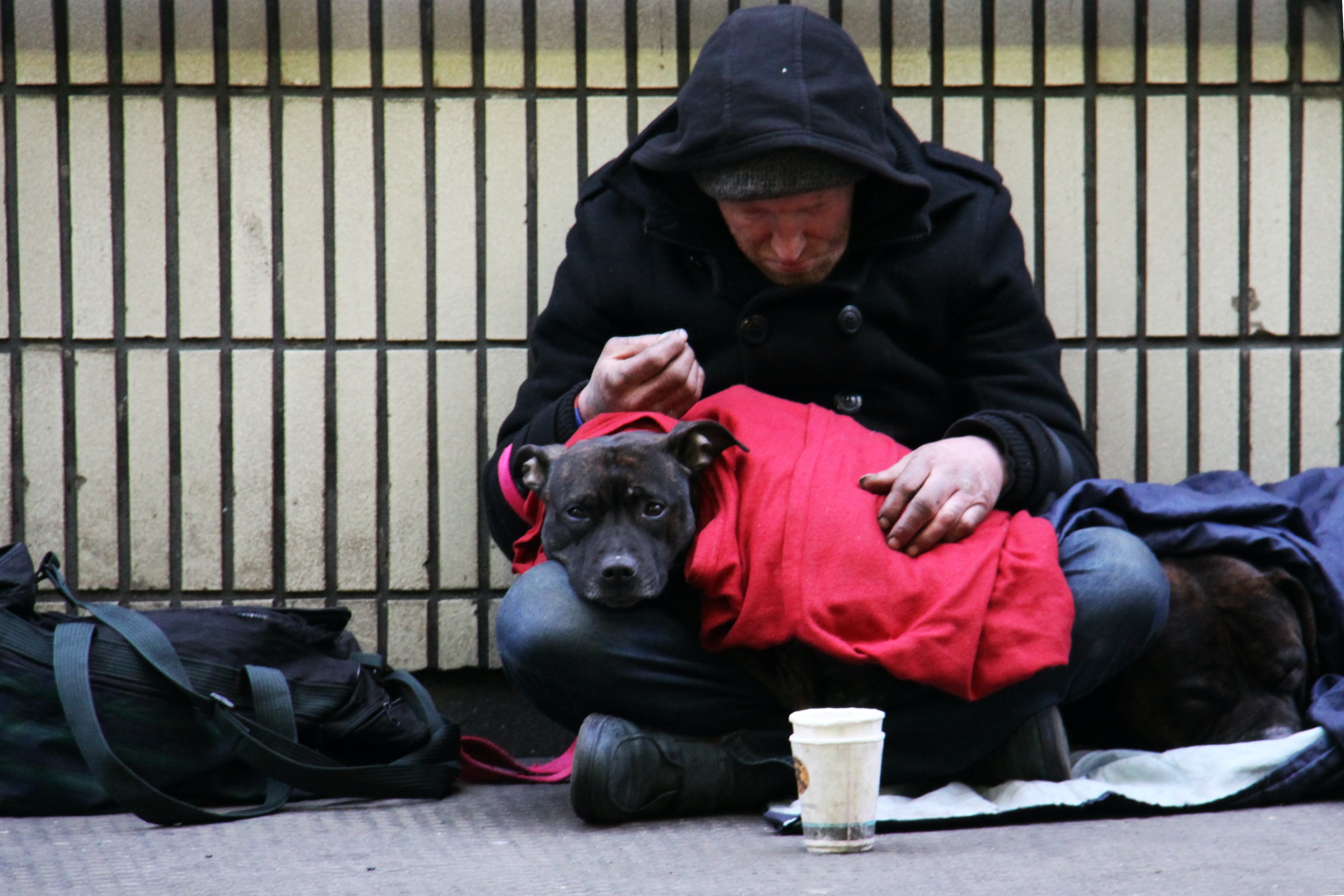The National Union of the Homeless (NUH) was a grassroots organization in the United States that emerged in the 1980s. It was dedicated to advocating for the rights and needs of homeless individuals and families.
The 1980s saw a significant increase in homelessness in the United States, driven by cutting of mental health facilities, rising housing costs, and cuts to social welfare programs, as the neo-liberal counter revolution to the 1960s’ came into full effect.
The National Union of the Homeless was officially founded in 1985 at a national gathering of homeless people in Philadelphia. The organization aimed to unite homeless individuals and advocates across the country to fight for their rights, access to housing, and an end to homelessness. It became known for bold tactics, like the 1988 “Take Off the Boards” Campaign, in which vacant houses were squatted, coordinated in 73 cities.
While the National Union of the Homeless did not end homelessness in the United States, it played a significant role in raising awareness of the issue and pushing for policy changes. It also provided a platform for homeless people to have their voices heard and to organize collectively.
“At its height, the National Union of the Homeless (NUH) had over 20 local chapters and 15,000 members in cities across the US. Most importantly, it implemented a model of organizing involving the poor and homeless thinking for themselves, speaking for themselves, fighting for themselves and producing from their ranks capable and creative leaders. This was contrary to the prevailing stereotypes and misconceptions about homelessness. Almost twenty years after the decline of the NUH, its history offers important lessons for building a movement to end poverty today, in the midst of continuing concentration of wealth among a few and expanding poverty for many. “

Learn more here: https://social-ecology.org/wp/wp-content/uploads/2011/12/Breif-history-of-National-Union-of-Homeless.pdf
